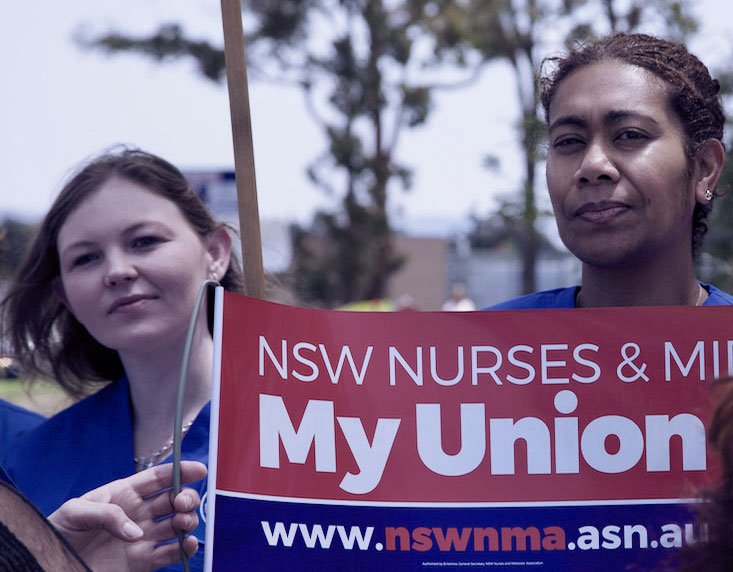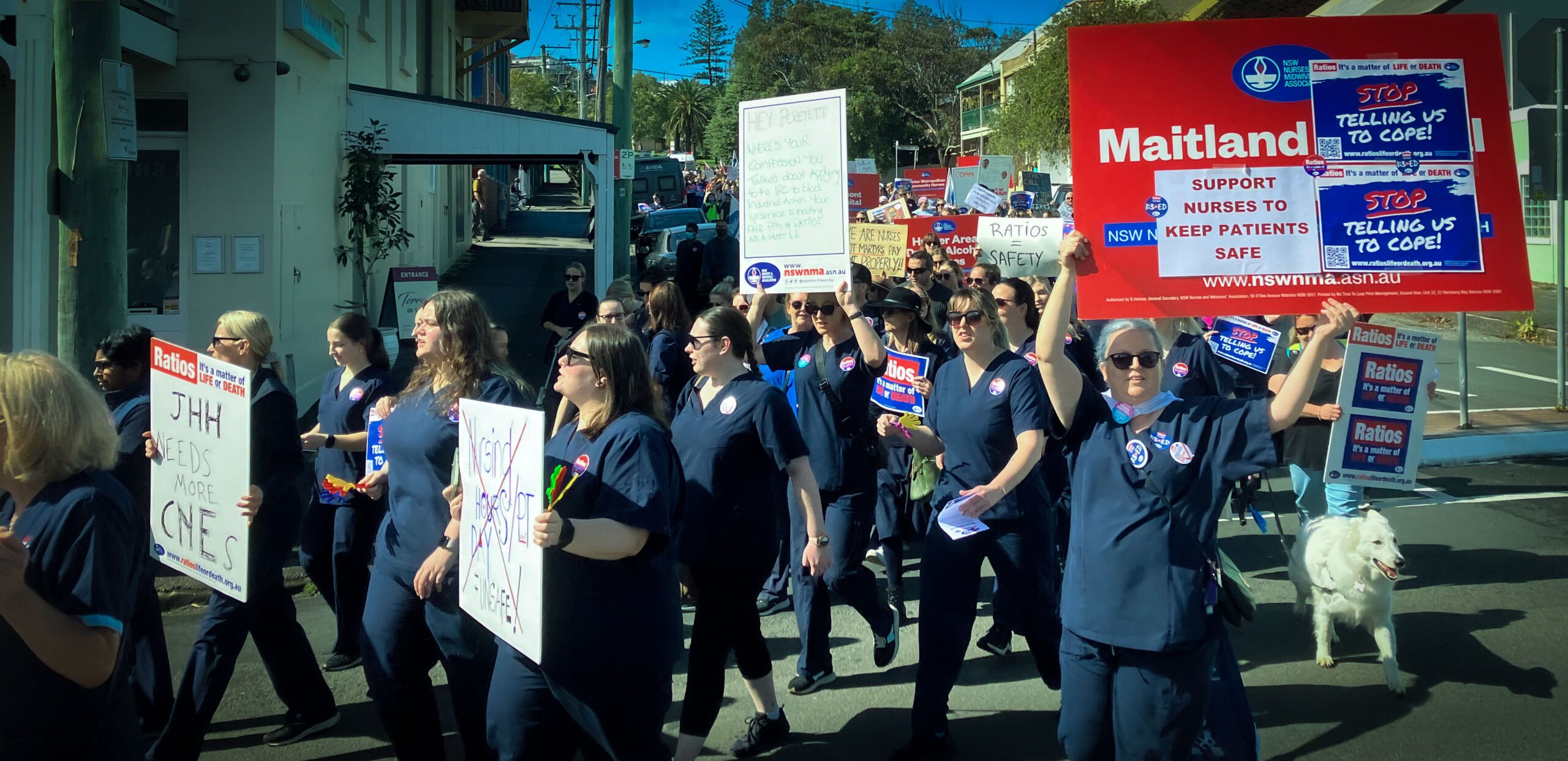 Hanna pulled her hair into a tight ponytail as she walked past the station. A steady stream of traffic whirred past her, not yet a crawl, broken by the occasional lumbering of a bus. She felt the city reluctantly waking around her, its heartbeat steadily gaining pace until it would be whirring and pumping. The soft morning air brought a brief cleanliness to the street, and held the promise of a hot day. She negotiated her way around a coffee line spilling out from a takeaway window, and marvelled at the energy of an early morning preacher warning passers by to consider where they might spend eternity. As she neared the brutalist edifice of the hospital, she remembered that it was the end of her run of liberty, day one of six, and she hoped it wouldn’t be chaos.
Hanna pulled her hair into a tight ponytail as she walked past the station. A steady stream of traffic whirred past her, not yet a crawl, broken by the occasional lumbering of a bus. She felt the city reluctantly waking around her, its heartbeat steadily gaining pace until it would be whirring and pumping. The soft morning air brought a brief cleanliness to the street, and held the promise of a hot day. She negotiated her way around a coffee line spilling out from a takeaway window, and marvelled at the energy of an early morning preacher warning passers by to consider where they might spend eternity. As she neared the brutalist edifice of the hospital, she remembered that it was the end of her run of liberty, day one of six, and she hoped it wouldn’t be chaos.
Through the automatic doors the quiet invaded her senses—artificial light, the familiar smell of industrial cleaners, subdued exchanges of others arriving for the mornings shift. The elevator scattered them across the layers of the building. From the far end of the long corridor leading to the wards, a porter pushed a bed towards her while a nurse held the bedrail as if to hold the patient. The nurse nodded acknowledgement as they passed, and Hanna returned the collegial strangers smile. She pinned on her ID, pocketed saline, tape, and alco wipes, until her transformation was complete and she stepped onto the floor scanning hopefully for signs of order and routine.
Handover confirmed that there were no ‘sick ones’. Relieved, Hanna made her plans. She took the bedside from Jack, whose weariness from the overnight shift revealed itself in his run of words and quick toss of the pages of the bedside chart. Bed eight—Lucy—he indicated with a slight head movement towards the woman sitting bolt upright in the bed. Hanna took in the picture of a slight woman, dominated by a thinning bouffant of grey hair, the remains of careful styling somehow discernible beneath its crushed disorder. Like the frames of a dilapidated manor, her cheekbones sat stubbornly high above sagging skin, hinting at a past flowering. Concentrating into a small mirror, Lucy was pencilling thick eyebrows in a dramatic arch onto her forehead. She raised her dark eyes, which, with the impact of the pencil curve appeared to regard Hanna with both severity and surprise.
“Hanna”, she repeated in a gravelly European accent after the introduction, “you my new girl?”
Without waiting for a reply she continued.
“I can see you have the kind face, so you will help me a little. I don’t ask for much, won’t give you trouble, but it is terrible for me, I can do nothing.” With an upward flick of her chin she asked Hanna if she was German, and this time allowed the response.
“My parents, yes.”
“Ah, I can see it, the blue eyes, the clear skin, I know many German people.” Hanna smiled, and started to tell Lucy that she would return after the handover, but Lucy got in first. “Can you fetch for me one cup of coffee? I know you will be busy later, everyone here always so busy darling, but I would now drink one cup of coffee, and then I will be happy. If I could walk, I do it myself, but you see, it is impossible.”
Hanna noticed Jack shifting his weight, glancing towards the door—they still had the other beds to get through. With a promise of coffee they managed to move back into the corridor where Jack added, “Hell, she didn’t take long to ditch me. Just before she asked me to set out her makeup bag she was saying how I’m a full copy of Robert Redford—back in the day—reckon she got that right, ay? Anyhow, she knows how to use that buzzer. Has those bilateral leg wounds, longstanding and not getting better. We’re working on discharge arrangements. Good luck!” He threw it in, with a hint of a smirk.
And then the bell started.
“I am just giving little reminder about this coffee, maybe you forget.”
“I am sorry to bother you, a bed pan please my darling.”
“No, nothing coming out, false start.”
“A bed pan, now it is real thing, I think.”
“I require these flowers to be moved urgently. A little more this way, it is imperative they do not touch the wall. This orchid is very delicate. It is from my daughter.”
As the morning drew on and Lucy’s demands persisted, Hanna struggled to swallow her rising annoyance. She tried to keep the intention out of her voice “Will your daughter be visiting today?”
“Not today. My daughter, she has very important job, very clever girl. She work in the court, making letters, interviews. She know many big people, big names.”
Hanna offered Lucy a shower, and together they began that clumsy dance to the bathroom. She positioned the commode and tried to give instructions. Lucy followed with her own. “I must have my hair washed properly, first the shampoo twice, then the condition. Maybe you can help me dry, and make it up like this, so it is more? My back, it is itching, you can wash good for me. You are a good girl, one I can trust. Some here, they don’t have this same kindness.” Hanna tried to focus on the job, though she felt her teeth holding tight as Lucy’s words flowed with the shower water, relentless, sweet, and sticky with barbs. As she shampooed, and shampooed again she heard only a grating tone, and felt the slow coiling of something rigid inside of her.
Later, Hanna glanced through the notes. Eighty nine year old woman, lives alone. Multiple falls, early dementia, poor compliance with medication. Next of kin a daughter with an out of town home number. Recent entry from the team–contact social work with view to placement, encourage mobility. A familiar story she thought as she rang through the social work referral.
On the second morning Lucy launched straight in.
“My lovely helper, please fold these blankets, it is terrible mess, and move to here.”
Hanna–softened and bolstered by the new day, decided she needed to make some changes, and in the shower she began negotiations, “the mornings are very busy, and I may have to leave some of the less important jobs till later…”
Lucy cut right in. “Yes, to you this is not important, how you say, trivial, but to me is important. Old people, we cannot do anything ourselves, and if the young people don’t help, what can we do? What I ask is quick for you, true?” Hanna felt the recoiling, as Lucy leaped on. ” I think my bandages need doing first today? It is bit loose, maybe not so much hurry today and make it better.” With routines and needs pressing Hanna chose the retreat and took a preventative tact. She returned Lucy to the bedside, folded the blankets, cleared the tray, moved belongings within easy reach, and checked that the orchid was in position. She thought she might at least make some progress while she worked. Her question to Lucy came stiff and matter-of-fact.
“Do you have someone who helps you at home?”
“Ah, darling, I live by myself, just myself. I have lovely home. Long time I am living same place, very expensive now. Many people want to live here, good quality people.”
“Do your neighbours help?” Hanna tried again.
“My neighbour, always smiling to me, say hello, very good. “
Before the end of the shift Hanna recounted the conversation to the social worker who had come to assess Lucy. With the menacing sound of a call bell in the background, and a glowing ‘8’ on the screen above her, Hanna wrapped up the exchange, “don’t know if home is an option for this lady anymore, the daughters in Newcastle, and there doesn’t seem to be anyone else around.”
On the third day, Hanna braced herself. The image of Lucy’s legs had bothered her. Raw gnarly sticks, eating themselves away, the blood too tired to move uphill, sleeping in her bloating ankles. Today Hanna had decided to be strong but kind, practical and professional, but it was only her mask, her nurse’s face, that didn’t wince at the ingratiating welcome from Lucy. “Ah sister, I am so glad it is you today. If you could know how hard my night is being. In my condition, don’t you agree, I should be having my own room. Here, with the disturbance from these others, it is impossible for me to get better.” Hanna felt her own intake of breath, the holding, the tautness of her shoulders as Lucy galloped on, unassailable, unstoppable, “Before I am ready, they make me get up. I say, ‘bring me pan’, they say, ‘let’s go to toilet’. But I am not ready. You will get me pan, yes?”
Hanna took hold of the thread. She snatched it victoriously, determined that it would be her turn. “Lucy, you told me you want to get better so you can go home, but how would you manage if you can’t go to the toilet. We want you to do these things because we want you to get better sooner.”
For a moment, Lucy’s eyes fixed hard on Hanna. Her voice dropped its weaving tone, and there emerged something steely, authentic, that Hanna had not yet seen. Lucy’s words seemed to break the molecules of air between them,
“And you think I will be going home”.
It wasn’t a question, there was a knowing behind it and no reply to be given, so Hanna faltered, and attempted to make peace—“What was your work, in the past?”—and Lucy didn’t appear to begrudge Hanna’s failed coup but found her mode again, as if no beat had been missed. “In Poland I am working deportment—you know this ‘deportment’. Very good school for young ladies. I teach them talking good, walking good. Manners is important thing. I make good example of manners to girls. You see me then, spectacular!” Hanna readied her for the shower while Lucy hurtled on.
By the fourth day arrangements had been made to move Lucy to Hetherington Lodge. The ambulance had been booked and at the bedside Lucy announced to Hanna that she had agreed to a period of ‘convalescence’. “My daughter talked to me about nice place I can rest. She look at picture on computer, say it is very clean. I have own room, is window, garden, all things. This girl at hospital who make a meeting with me, show me picture also. She book me in, like hotel.” An uncanny silence followed and this time they both seemed to anticipate the shift.
“But we all know it is prison—prison for old people.”
Aware of her complicity Hanna groped for a reply— “maybe you will like it”, but it felt colourless so she stumbled on—“c’mon let’s get you showered.” She positioned the forearm support frame and lifted Lucy’s bony legs to the bedside. “Push up from the bed” she instructed, and Lucy strained her withered muscles, as they swung around together to land her successfully in the commode. Lucy claimed her authority again as Hanna’s thoughts ebbed between the job at hand and others on her list. “You must clean my hair good today, twice the shampoo, once the condition. My god, it looks like mop.” Hanna bent to wash Lucy’s swollen feet, her toes angled crudely over one another, nails clawed. She made a mental note to mention podiatry on her handover to the nursing home and then managed to squeeze a comment into Lucy’s diatribe. “Your feet are tiny, like a child’s.” It was a throwaway line, to prove she was there and not away in those other thoughts, but it was Lucy’s reply which snapped her back.
“Same feet as my mother. I lost her when I was a girl, 15 years old.” She stared into the past. “If you knew my life—I was in Dachau—you know this place? Can you imagine, I see my mother be put into one line, myself another.”
Looking up from her work into that old woman’s tired face, Hanna felt a roughness in her throat, felt the coil inside her give way. All was still between them. She washed those toes. She rubbed moisturiser onto Lucy’s reddened back, brushed her hair, tried to tease it up. Under instruction, she dressed Lucy in her silky blouse and inconvenient button up skirt, too tight around the middle, which Lucy explained was of the best quality tweed, as she pointed out a bent safety pin used for keeping it closed. Hanna placed the orchid on Lucy’s lap on the ambulance trolley, where she sat, head held high, black pencilled eyebrows dominating her thin powdered face. She looked forward with a stubbornness that now made some sense to Hanna, who wished her luck, gave her a short appropriate hug, and hurried off to take the handover for a new patient arriving in bed 7.
In the afternoon, leaving the hospital along those wide corridors Hanna thought of Lucy travelling that same route, off to her new home, perhaps her last home, and she thought she caught a glimpse of that same girl, at 15, on another route, along another corridor. She wished she had seen just one visitor at Lucy’s bedside, or holding onto the side of that ambulance trolley, a familiar face, holding on as if they were holding Lucy as she made her way towards the hospital exit.
Without knowing it Lucy had perhaps learned the value of carelessness, youth, frivolous things. She had teetered on the edge of the ultimate chasm once before and miraculously gained her footing, fallen instead, back into life. Something in Hanna sang for her rejection of acceptance, of Erikson’s final stage of development, integration, the mark of wisdom. Maybe there was wisdom in wanting to live, taste, breath, every last triumphant breath. Lucy’s finale was not a resignation, a depression, nor the soft luminous gaze of old age. To Hanna she had seemed fresh each day like a newborn, craning for sustenance. Every morning a fierce assertion that this day would still remain hers, a sinking swimmer holding to every branch, clambering atop any debris to remain afloat.
And as she exited through the automatic doors into the bright sunlight to join the crowd at the crossing these thoughts faded, too large for the day. But in that milieu, what she felt was freedom, and what she saw were so many faces—the mass, each with a story.








